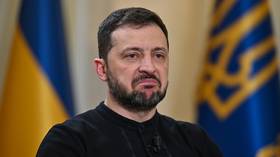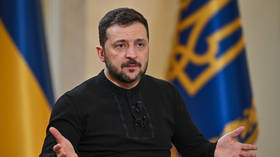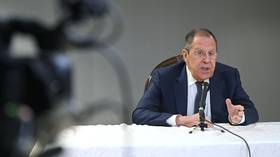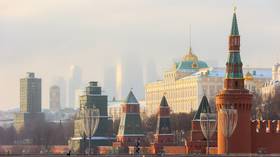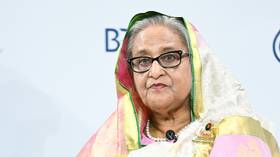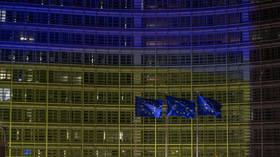Trump supports special visas for Venezuelan refugees fleeing a carnage that he helped create
Despite his tough anti-immigration stance, President Donald Trump is exploring the idea of granting Temporary Protected Status to Venezuelans fleeing the country still under US sanctions after its Washington-backed failed coup.
TPS is a federal government designation for people residing in the US who have fled from severe natural disasters or armed conflict. It currently applies to people from ten different countries, including war-torn Yemen, Somalia and Sudan. The bill to apply TPS to Venezuelans was introduced to congress by Florida Representatives Mario Diaz-Balart and Darren Soto in January. The legislation passed through the committee stage last month and is now awaiting a vote on the House floor.
Trump’s unexpected show of support for the move sharply contrasts with his otherwise staunchly anti-immigrant stance. He has called for a “zero tolerance” stance on illegal crossings along the US’s southern border with Mexico, and even moved to discontinue TPS for several of the countries currently on the list.
Inclusion of Venezuelans, however, fits within a historical pattern of favoritism toward countries with governments deemed enemies of Washington.
Also on rt.com Maduro opens border with Colombia, shut down over opposition’s aid-smuggling attemptPeople leaving Cuba, for instance, have long benefited from the so-called “wet-foot, dry-foot” policy in which those who reach US shores are automatically granted legal residency. The impoverished Caribbean island nation has for decades faced unyiedling hostility from Washington, including a brutal economic blockade that has cost its economy over $100 billion and has isolated it from the global economy. Though Washington ostensibly bases its stance on human rights concerns, the “embargo,” as it has come to be known, is in reality punishment for expropriating US-owned assets such as those belonging to the corporate agro-industrial giants that dominated Cuba’s economy before the revolution.
People fleeing from countries that serve Washington’s interests, and often from chaos created by Washington’s own foreign policy, however, tend not to be welcomed with open arms. Since the US-backed 2009 coup against the democratically-elected government of Manuel Zelaya, for instance, Honduras has descended into an ever-worsening human rights nightmare. This has led to a humanitarian crisis and exodus of people from the country. A large portion of the people in the recently highlighted migrant caravan were Hondurans fleeing from the violence and dispossession caused in large part by US policy. A similar story has prevailed in Guatemala, where president Jimmy Morales has presided over a worsening human rights situation and stands accused of widespread corruption. As with Honduras, this has led to a protracted exodus of people fleeing to the US for refuge. Yet, in spite of Washington having helped cause these mass migrations via generous funding to these Central American nations, Trump has railed against the migrant caravan and even indicated that he would authorize US troops to open fire with live rounds were its members to try and cross the border.
Also on rt.com Canadian FM plays good cop to US, promising Cuba 'part to play' in Venezuelan democracyUnlike post-coup governments in Honduras, the Venezuelan government has not been dutifully obeying orders from Washington. As a result, it has been singled out for criticism and subjected to a destabilization campaign by Washington and its internal allies in order to achieve “regime change.” These efforts began the day former president Hugo Chavez was elected and continued through the 2002 attempted coup and the 2002-2003 “oil strike,” led by Venezuela’s chamber of congress with US backing.
This adds a further layer of irony to Trump’s stance on TPS for Venezuelans. His government’s actions have been a major cause of the economic misery and political instability in Venezuela. Sanctions against the Maduro government have severely exacerbated the economic crisis. According to research by development economists Jeffrey Sachs and Mark Weisbrot of the Center for Economic and Policy Research, they have been directly responsible for the death of around 40,000 people and have been described by former UN rapporteur Alfred de Zayas as a “crime against humanity.” Washington’s instigation of a coup attempt by its proxy, Juan Guaido, meanwhile, is the major factor that precipitated the current political crisis roiling the country.
Peter Bolton for RT
Think your friends would be interested? Share this story!



